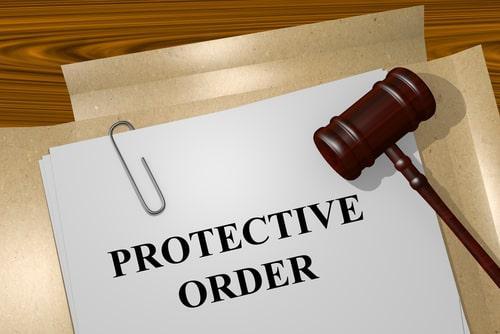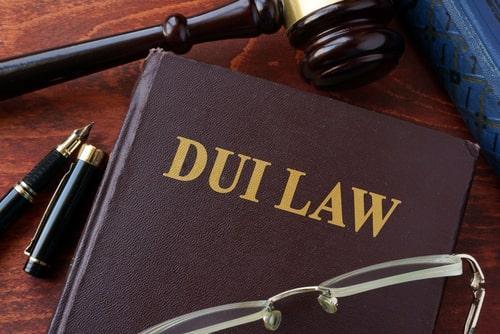Recent Blog Posts
What to Do After a False Accusation of Domestic Violence
 Being charged with a crime you did not commit can be a nightmare. One of the most common offenses that innocent people are charged with is domestic violence. It is shockingly easy to be arrested for domestic violence based on a false accusation, often by an angry romantic partner. There are a number of reasons that people make these false accusations. It is extremely easy for a simple fight between a couple to spiral out of control. Perhaps a neighbor called the police because they heard yelling and the police arrested you for lack of a better solution. Or maybe your romantic partner intentionally filed a false police report out of spite. However it happened, it is extremely important that you focus on building a strong defense. A domestic violence conviction is heavily stigmatized and can impact the rest of your life.
Being charged with a crime you did not commit can be a nightmare. One of the most common offenses that innocent people are charged with is domestic violence. It is shockingly easy to be arrested for domestic violence based on a false accusation, often by an angry romantic partner. There are a number of reasons that people make these false accusations. It is extremely easy for a simple fight between a couple to spiral out of control. Perhaps a neighbor called the police because they heard yelling and the police arrested you for lack of a better solution. Or maybe your romantic partner intentionally filed a false police report out of spite. However it happened, it is extremely important that you focus on building a strong defense. A domestic violence conviction is heavily stigmatized and can impact the rest of your life.
Steps Innocent People Can Take After a Domestic Violence Arrest
How you handle the accusation will make all the difference. Steps you should take include:
When Can Traffic Violations Lead to the Loss of a CDL?
 Drivers of commercial vehicles, including long-haul trucks, delivery vehicles, and other vehicles driven for work-related purposes, put significant time and effort into obtaining a commercial driver’s license (CDL). Since this type of license is a requirement for certain occupations, the loss of a CDL may affect a person’s ability to continue earning an income, and it could cause significant financial difficulties for them and their families. Because of this, drivers will need to be aware of CDL violations that could affect them, and they will want to respond promptly to traffic tickets or other issues that could affect their careers.
Drivers of commercial vehicles, including long-haul trucks, delivery vehicles, and other vehicles driven for work-related purposes, put significant time and effort into obtaining a commercial driver’s license (CDL). Since this type of license is a requirement for certain occupations, the loss of a CDL may affect a person’s ability to continue earning an income, and it could cause significant financial difficulties for them and their families. Because of this, drivers will need to be aware of CDL violations that could affect them, and they will want to respond promptly to traffic tickets or other issues that could affect their careers.
CDL Disqualifications for Traffic Offenses
Certain types of offenses are considered to be “major violations” that will result in the automatic disqualification of a CDL. DUI is one of the most common of these offenses. When driving a commercial vehicle, a person will be considered to be intoxicated if they have a blood alcohol content (BAC) of .04 percent or higher or if they are under the influence of controlled substances. However, a commercial driver may also lose their CDL if they are convicted of drunk or intoxicated driving in a non-commercial vehicle.
UPDATE: Drug-Sniffing Dogs May Now Be Overqualified
 Originally published: December 26, 2016 - Updated April 20, 2022
Originally published: December 26, 2016 - Updated April 20, 2022
Update: At our law firm, we have consistently kept up with all of the changes to the laws regarding marijuana use in the state of Illinois. A few years ago, we put together the post shown below as a consideration in the decriminalization of cannabis that was going on at the time. We highlighted some expert opinions that expressed concern over the use of drug-sniffing dogs in the state as the criminal penalties for low-level marijuana possession were being lifted.
Today, these concerns have grown even further as the state of Illinois has fully legalized the recreational use of cannabis for adults in the state. As of January 1, 2020, an adult over the age of 21 is permitted to possess and consume cannabis for recreational purposes and to purchase cannabis from state-licensed dispensaries.
One unintended consequence of the new law has been the early retirement of many drug-sniffing dogs in police departments around the state. (The same is happening in other “legal” states throughout the country.” It is very difficult, in many cases, to retrain a drug detection dog to ignore marijuana once the animal’s original training is complete. As a result, police departments are retiring their dogs earlier than originally expected and, in some situations, replacing them with dogs who have been trained to focus on other illicit drugs such as cocaine, heroin, and meth.
What You Need to Know About Statutory Summary Suspensions in Illinois
 When you are arrested on charges of driving under the influence, you probably realize that the criminal penalties for a conviction can be severe. It may come a surprise to learn that you could face administrative penalties, including the suspension of your driving privileges, even if the criminal charges against you are dropped or you are found not guilty of DUI. Our experienced criminal defense lawyers understand that most DUI cases are multi-faceted, and we are equipped to help you at every stage of the proceedings.
When you are arrested on charges of driving under the influence, you probably realize that the criminal penalties for a conviction can be severe. It may come a surprise to learn that you could face administrative penalties, including the suspension of your driving privileges, even if the criminal charges against you are dropped or you are found not guilty of DUI. Our experienced criminal defense lawyers understand that most DUI cases are multi-faceted, and we are equipped to help you at every stage of the proceedings.
Blood Alcohol Content Testing
Chemical testing for blood alcohol content, or BAC, is one of the most common methods used by law enforcement to collect evidence in a DUI-related case. If you have been pulled over by police and the officer asks you to submit to such testing—usually a breath test—but you have not been arrested, you have the right to refuse the test with no legal or administrative consequences. If you have been placed under arrest on suspicion of DUI, however, and the officer requests a chemical test, the entire situation changes.
Can the Results of Field Sobriety Tests Be Challenged After an Illinois DUI Arrest?
 If someone asked you right now, could you stand on just one foot for 30 seconds while holding your other foot just off the floor? What about walking heel-to-toe along a straight line, then turning and coming back on the same line? What if the line was imaginary, and you could not see it? Did you know that if you had trouble with either of these exercises, federal agencies indicate that there is about an 80 percent chance that you are currently intoxicated?
If someone asked you right now, could you stand on just one foot for 30 seconds while holding your other foot just off the floor? What about walking heel-to-toe along a straight line, then turning and coming back on the same line? What if the line was imaginary, and you could not see it? Did you know that if you had trouble with either of these exercises, federal agencies indicate that there is about an 80 percent chance that you are currently intoxicated?
Clearly, this was meant to be an exaggeration, but the reality is that the tests mentioned in the previous paragraph are actually part of the battery of tests that the police use every day to test drivers who are suspected of being impaired by alcohol or drugs. The results are commonly used as evidence for the prosecution in DUI cases, even though the tests are not quite as accurate as the police and prosecutors want you to believe they are.
What You Should Know About FSTs
Can People in Illinois Face Drug Charges Related to Marijuana?
 On January 1, 2020, marijuana became legal for recreational use in Illinois. While the state had previously allowed marijuana to be used for medical purposes by people who had received a state-issued medical registration card, all adult residents of the state and visitors from other states are now allowed to possess and use marijuana. However, there are certain limits that apply to recreational use of marijuana, and people may still face drug charges if they violate the state’s marijuana laws.
On January 1, 2020, marijuana became legal for recreational use in Illinois. While the state had previously allowed marijuana to be used for medical purposes by people who had received a state-issued medical registration card, all adult residents of the state and visitors from other states are now allowed to possess and use marijuana. However, there are certain limits that apply to recreational use of marijuana, and people may still face drug charges if they violate the state’s marijuana laws.
Drug Charges for Possession or Distribution of Marijuana
The Illinois Cannabis Regulation and Tax Act made it legal for adults over the age of 21 to possess a certain amount of marijuana for recreational use. A person may possess up to:
-
30 grams of marijuana plants
-
500 milligrams of THC in marijuana-infused products
-
5 grams of concentrated cannabis
Adults who are not Illinois residents may possess up to half of the amounts listed above. Possession of cannabis or products containing THC in excess of the allowed amounts may result in criminal charges for marijuana possession. Possession of between 30 and 100 grams of marijuana is a Class A misdemeanor. Possession of more than 100 grams is a Class 4 felony, and more serious felony charges will apply for possession of 500 grams or more.
What Are the Consequences for Stealing Gas in Illinois?
 Gas prices have skyrocketed over the decades and paying for fuel is one of the most onerous aspects of car ownership. However, the State of Illinois gives no free passes for gas theft. The crime is punished harshly, with serious consequences that can upend your life. Gas theft takes many different forms. The offender may drive to the gas station and siphon gas directly into his vehicle or walk to the pump and fill a jerry can or barrel.
Gas prices have skyrocketed over the decades and paying for fuel is one of the most onerous aspects of car ownership. However, the State of Illinois gives no free passes for gas theft. The crime is punished harshly, with serious consequences that can upend your life. Gas theft takes many different forms. The offender may drive to the gas station and siphon gas directly into his vehicle or walk to the pump and fill a jerry can or barrel.
If you are charged with the crime of gas theft, you have the right to legal representation. An experienced criminal defense lawyer can provide you with options and chart a path forward based on your needs.
Misdemeanor v. Felony Gas Theft
Per Illinois law, theft occurs when a party knowingly steals property belonging to someone else. You can also face theft charges for buying or receiving stolen goods. The element of intent is important in a fuel theft case. The offender must knowingly take fuel without paying for it and without any available pretense that would justify his actions (e.g., being told by the station owner not to pay for the gas).
What Are the Consequences for Violating a Protective Order in Illinois?
 If you are accused of domestic violence, you may also be the subject of a protective order. Courts issue protective orders to preserve the safety and well-being of domestic violence victims. They may be imposed if the offender allegedly abused, harassed, or intimated the victim. An order is also warranted if the personal liberty of the victim was allegedly violated, or they were willfully deprived of basic necessities so as to put them at risk of physical, mental or emotional harm.
If you are accused of domestic violence, you may also be the subject of a protective order. Courts issue protective orders to preserve the safety and well-being of domestic violence victims. They may be imposed if the offender allegedly abused, harassed, or intimated the victim. An order is also warranted if the personal liberty of the victim was allegedly violated, or they were willfully deprived of basic necessities so as to put them at risk of physical, mental or emotional harm.
Protective orders are issued when an alleged victim is threatened or harmed by a former or current household or family member, including:
- People related to the offender by blood
- Those who reside in the same home as the offender
- People who have a child with the offender
- A person who is married to or dating the offender
- People with a disability or other high-risk adults at risk of abuse.
Responding to False Allegations of Domestic Assault
 There is no doubt that domestic violence is a real concern in the Chicago area. On average, more than 500 people call domestic violence hotlines every day in the Chicago area.
There is no doubt that domestic violence is a real concern in the Chicago area. On average, more than 500 people call domestic violence hotlines every day in the Chicago area.
The state of Illinois takes domestic battery and family violence very seriously. Individuals convicted of domestic violence offenses often face lengthy prison sentences and other serious consequences. Sadly, some people use Illinois’s strict policies to “punish” or get revenge on others by reporting false accusations of domestic violence.
If you or a loved one were accused of domestic violence by a current or former romantic partner, household member, or family member, contact a criminal defense lawyer right away for personalized legal guidance.
Comply With Any Protection Orders
Many people are surprised to learn that a supposed domestic violence victim can get an order of protection even if they do not have evidence of the alleged abuse. To protect legitimate victims, Illinois courts issue Emergency Orders of Protection based on the petitioner’s testimony alone.
Will I Have to Get a Breath Interlock Ignition Device for a DUI in Illinois?
 Breath interlock ignition devices connect to a car, truck, van, or other vehicle and control the vehicle’s ignition switch. In order for the ignition to engage and the vehicle to start normally, the driver must submit a breath sample into the mouthpiece of the device by blowing into it. The device analyzes the driver’s breath for alcohol. If the device registers any more than a negligible amount of alcohol on the driver’s breath, the car will not start. If the breath sample contains no alcohol, the car starts normally. Read on to learn about how Breath Alcohol Interlock Ignition Devices (BAIIDs) are used in Illinois and whether you will be requested to get a BAIID installed on your car after an arrest for driving under the influence of alcohol.
Breath interlock ignition devices connect to a car, truck, van, or other vehicle and control the vehicle’s ignition switch. In order for the ignition to engage and the vehicle to start normally, the driver must submit a breath sample into the mouthpiece of the device by blowing into it. The device analyzes the driver’s breath for alcohol. If the device registers any more than a negligible amount of alcohol on the driver’s breath, the car will not start. If the breath sample contains no alcohol, the car starts normally. Read on to learn about how Breath Alcohol Interlock Ignition Devices (BAIIDs) are used in Illinois and whether you will be requested to get a BAIID installed on your car after an arrest for driving under the influence of alcohol.
When Is a BAIID Required in Illinois?
If you are arrested for driving under the influence of alcohol (DUI) in Illinois, and you fail a breath test such as a Breathalyzer, your driver’s license is automatically suspended for six months. If you refuse to take the Breathalyzer, your license is suspended for a year. Once your license is suspended, it becomes unlawful for you to drive any vehicle for any reason. At this point, you have two options: You can refrain from driving until the suspension period is over or you can ask for driving relief through a Monitoring Device Driving Permit (MDDP).







